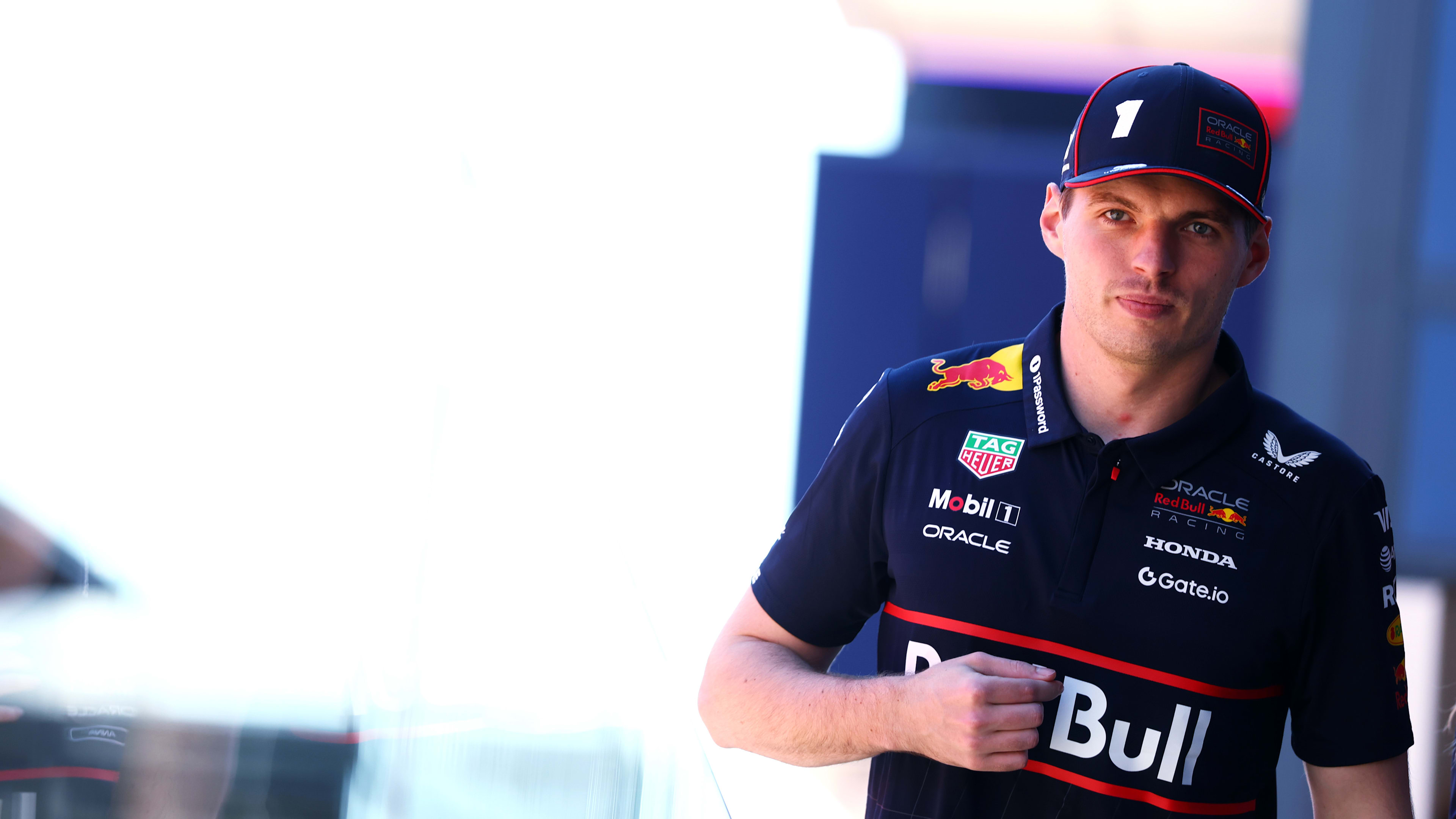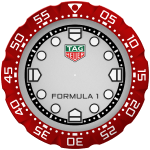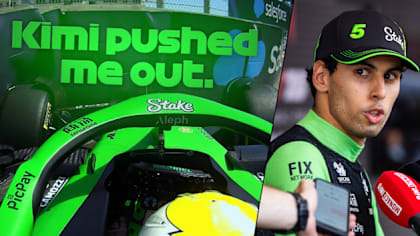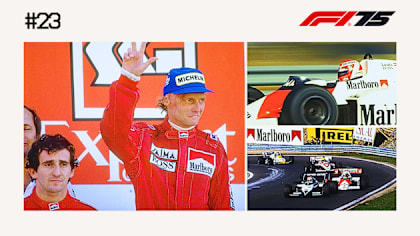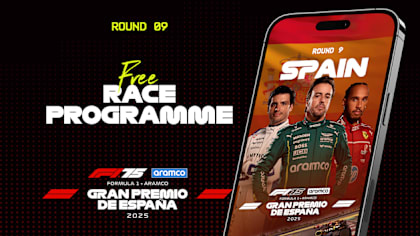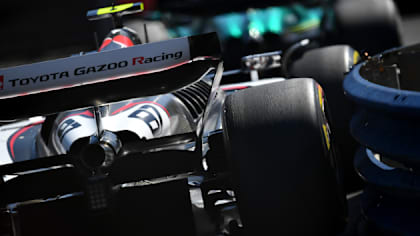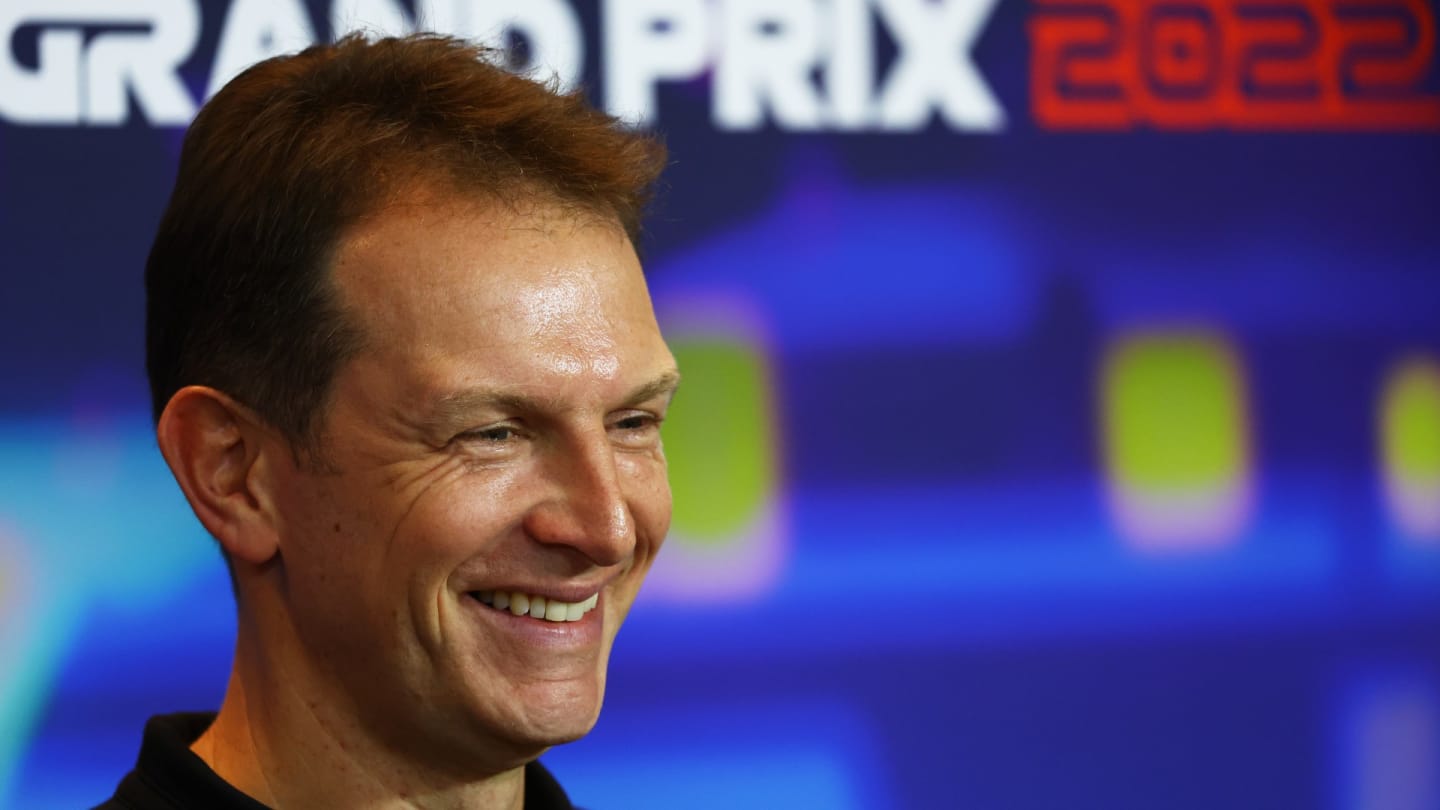
30 May - 01 June
PodcastF1 Unlocked
FULL TRANSCRIPT: Read every word from Alpine CEO Laurent Rossi's Beyond The Grid podcast interview
Share

On the latest episode of Formula 1's Beyond The Grid podcast, Alpine CEO Laurent Rossi joins host Tom Clarkson to discuss everything from his upbringing to Alpine's 100 race plan – as well as the team's new driver line-up, the Oscar Piastri saga and much more...
Below you can read the full transcript of the episode, listen below in the audio player, or head here to catch it on your preferred platform.
Tom Clarkson: Laurent, thank you very much for coming on the show. It's great to see you. Now, before we get into it, I want to emphasize to the listeners how unique you are in the Formula One Pitlane because you're CEO of a road car company and a Formula One team. I don't know how you have the time.
Laurent Rossi: I don't. But thank you for noticing. I don't. But I'm trying to balance the two activities a bit more, especially since the arrival of Otmar last year.
TC: Just tell me what a typical day looks like for you. How much of your life is Alpine road costs and how much of it is Formula One?
LR: Well, it's changed over time. In the first few years, it was 60% of my week is Formula One. And 40% of the rest. Obviously, the road cars, as well as being an executive of the Renault group, because this is also a duty of mine, which was not good. It was not doing a service to any of the areas, but I had to do it for Formula one sake because I needed to figure out things and decide for myself what type of organization I wanted to put in place and which areas you need to reinforce, which I did.
And I think now it's gone the other way around. More like a trade and contain Formula One to the weekend. And I'm trying to not do all of them, even though it's very hard, which is a bit better. So basically during the week I have the road car job, during the weekend I have the Formula One job.
TC: Talk about the culture that you have at Alpine. What does Alpine stand for? What? Tell me more about the culture.
LR: Well, we're very lucky that we inherited a brand that's born from racing. So, the founder, Jean Rédélé, back in 1955, created only race cars. He had no interest in road cars back then. It's only Renault, when they acquired Alpine, they decided to create road cars. And so our true DNA is racing. And as a matter of fact, after Luca de Meo decided to regroup all of the sports activities, the motorsports activities of Renault under one banner, the Alpine one, we have now gone back to our roots with racing being at the center of everything. Alpine means racing. This is what we are.
TC: And what about you? Are you a racer? Did you growing up in Corsica? Imagine the tour De Corsica rally and things like that. Is racing part of you as well?
LR: Yeah, a big influence. The tour, of course, was obviously the big event of the year for for everyone, and especially for myself, my father, being in mechanics, sometimes racing, sometimes helping racers himself because he could fix cars and all. Now, I was kind of like lucky enough that in my family it's hard working people, no diploma really. So they basically worked from 16 years old and never stopped. So they basically forced me into considering studies, which I did. So it was not an option to become a racer or anything like that. It could be a hobby like my father did, but only the real job from their own words. And I have to say it's probably for the better because I love what I'm doing. I love the strategic part and execution part of the job. I love being also involved in sports activities. So, in fact, I have the best of both worlds today.
TC: Do you find it inspiring being involved in sport, being surrounded by racing drivers and brilliant technicians?
LR: Absolutely. I think up until the day I started this job in Formula One, I was always using and I'm still using that even more so now. Sports metaphors, analogies. For me, sport is basically the essence of, effort, commitment to a result and excellence. So it was always for me, something that I would bring into my world, whichever world I was in, whichever career I was following.
And now it's almost just natural because it's part of it every day. And you have to admit those champions as well as those engineers committed to that, the engineers, mechanics, everyone truly committed to that sport. It's just mind blowing like the efforts, the amount of their lives they put into that thing, just for entertainment of others is just mind blowing, it's admirable.
TC: And you get to deliver the competitive juices on the squash court. You still play don't you? Rumour in the paddock.
LR: Yes. I try to keep that as my, if only activity, at least the central one. I play, let's say two times a week when I can. So because squash is kind of easy, right? You just need to find a partner and 45 minutes. So chances are at 9 p.m. after a long day of work, you can always find someone. So I try and do that and then over the weekend of Grand Prix, it's a bit more difficult because squash is not that popular.
TC: Have you found a racing driver to play squash with?
LR: I hear that Carlos Sainz.
TC: Senior was a champion.
LR: Very good. And the son, the driver, you know, the other driver, both of them are not bad either. But I guess the schedule is difficult. Esteban kind of plays a bit. I think they will move to paddle, which is the most popular and probably less traumatic activity.
TC: Carlos Sainz, Junior against Laurel Rossi is a match I want to see.
LR: Perhaps the only place where I could beat him
TC: Let's move on track and talk about Alpine's 2023 season. What are your goals?
LR: Two years ago I said, and everybody was like, they are you buying time. We are on a 100 race journey, and I maintain that. It takes time to turn around a ship like that to basically get to where Mercedes is, was in fact, Red Bull is. All these teams have taken like a good three, four years, five years, for some Ferrari, even longer to get back to the podiums. And so we are on this path, hopefully. The first two years of that kind of four or five year plan are going well. They delivered according to our expectations. We finished fifth in 21, fourth in 22. So it's only natural now we're looking towards the other spots up there on the podium. But I have to say we are also very well aware that the gap to third is like it's big. So I think this year, which is a critical one, we need to show that we are capable of getting closer to these guys. Of course, to beat them would be ideal. So everyone has that as a as a stretch target, a moon-shot, I would say, but the minimum is to finish fourth and start like bridging that gap to third.
TC: Because it was 342 point. That's the gap between you and Mercedes which is...
LR: Which is roughly three times more points the gap than the points we scored. So it's, it's a hell of a lot.
TC: Yes, it's a big gap. So just closing that gap.
LR: Yeah. And to close that gap, there's no other way around. You need to basically climb on the podiums every now and then. You cannot just finish like five, six, seven every race. Which is already good, because let me remind you that two years ago we were barely fighting for a point here or there that was all daily, if you will. So it's a it's a tremendous amount of progress. But now it's like climbing a mountain. Every time you go higher, every amount of effort to get the same point is a bit more difficult to the organism and like right to your, you breathe a bit more difficult like in a difficult way to get there. So I guess we're there now and we need to stay there and and continue.
TC: When you say you think you're there now, are you there in terms of the technological capability of Enstone and Viry. I was there not so long ago and I was blown away at how you've transformed that place since Renault came back into Formula One in 2016.
LR: Yeah, that's right. We're not there yet. Obviously, it's going to take a bit of time because, of course, the cost cap is the best thing this up and to us because it's leveling up the playing field. But at the same time, the advantage required of a 20 years of overinvesting compared to others, you're not going to catch up like that.
But we are we are trying. So we basically investing heavily, massively in all of those facilities, equipment, resources and not just physical resources, people resources as well. So we're trying to we're not trying. We are on a path to getting closer and closer to a top team structure, which we didn't have before. And one of the big things we had this year, which is getting us even closer to that, is, for instance, that testing like bed rolling bench in Viry where you can try the chassis and the engine together.
So it's basically kind of like not allowing you to oversee 70% of the problems you would see while driving on track, which gets you in a place where, well, usually every year it was always impressive to see the top three teams arriving for the first day of Barcelona and Bahrain and just like, boom, get on to it like we 40 laps and everyone, every other team was like trying to fix the little problems.
We have that facility now, since this year. So we basically knew when we arrived in Bahrain, we would just completely go through our program without having to worry about anything. So that's that's a difference that something new.
TC: Was that a big investment?
LR: It is a big investment, yeah. You have to transform an entire like engine testbed, if you will, expand the room. It's a big investment. It's like in terms of CapEx, capital expenditure, it's more than 100,000. We in the vicinity of a million and more so, but it's an important one and we train and do that in Viry and Enstone, in both places obviously. And every time I'm saying we're trying. We're not trying we're doing it. We have a program that we devised after a year of analysis, the first year when I arrived, which is called the Mountain Climber, which is the Gap bridging gap to Benchmark and or best in class, because to win, you basically need to be, at the very least, a benchmark in all areas and best in class in some areas, Aero and so forth and so on. So we're trying to get there. We devise a program of investment, of hiring, of organizational changes to get there. And we're on our way there.
TC: You used the expression a moment ago, overspending at the front of the grid, the Mercedes, the Ferrari, the Red Bulls. And do you think Renault underestimated the situation at Lotus because there had been ten years of underinvestment in your team while the others were?
LR: I am not sure they underestimated it. I just simply think that the magnitude of investments made by all others was not in the realm of capabilities that we had as an automotive group, back then. I was not there, so I couldn't say. But I have to say, knowing, well, the intricacies of a group like Renault, I can't imagine that we're talking about like seven, eight, 900 million, perhaps a billion every now and then of investment by those top teams, even by Toyota back then when they tried to succeed in Formula One, per year. This is like three times, four times the order of magnitude of what you usually spend, especially now on the cost cap. It's easy to we have the numbers. We couldn't afford that. Like a group like Renaults was the responsibility of 140,000 people cannot overspend they're at the risk of, you know, losing on the other side, which is the car business, which is paying for all of this. We have to remember that. And so you cannot put the the jobs and lives of so many people on the line just to be competitive in the sport. It was not a rational thing to do. Now we're getting in an era where we can compete with the same amount of money. Of course, we still need to catch up on those things, but we can do it gradually.
TC: Do you still believe the adage, Win on Sunday? Sell on Monday?
LR: Yes, I do. I do. It was always already true back then when you had v10, V12 and and you would sell that to your customer of a four in line engine, because it was selling your expertise, it was selling your capability to develop high end pieces of technology. And so if I can do that, I can certainly do your everyday engine.
Don't worry about that. But it's even more true now because we're getting in a very interesting time where motorsports and the car industry are converging. Well, first of all, simply because of electrification. Now the rule of the game is to optimize the use of the battery, everywhere. Whether you have a fully electric car or an hybrid like an F1, it's the same exact principle.
And as a matter of fact, there is even an acronym for that, which is a battery management system. And we have the same acronym in Formula One and in the rest of the industry, which is how much of torque power can I get from this battery and how much can I replenish the battery to deliver that torque and power repetitively?
It's the same problem, exact problem for both, except one car is delivering a thousand horsepower, the other one is covering a billion km. So it's a bit of a different story. But at the end of the day it's the same problem. So the convergence becomes quite interesting because if you win on Sunday, you can pretty much use that experience and know how on Monday and put it in the car that people will want to buy.
TC: Ford and Audi are joining Formula One just just around the corner. Is that convergence you talk about, the reason why this sport is proving so irresistible to OEMs, to manufacturers?
LR: Well, I wouldn't speak for others, but I'm assuming, yes. There is something there, because if F1 was irrelevant to them, they would not invest, since F1 becomes something that you can leverage for the sake of commercial purposes. Yes, it is interesting. And then again, it's also something that shows who you are. For us, Renault, F1 was pretty much threatened two years ago or three years ago because the results were not coming and the investment was still, that even though it was not 800 million a year, was still significant.
And then Luca de Meo arrived and said I am not going to be the CEO that is going to stop 40 years, 40 plus years of Formula One, and it's part of our DNA. So he saved Formula One. He saved the DNA of Renault. But by saying that, he said the DNA of Renault is motorsport. So for us, irrespective of the convergence, it's also a statement.
We are very much into competition, very much into sports, motorsport. Whether you're going to find that in your car or not, it doesn't matter. It's kind of like you want to your brands, the group brands as well as the Alpine brand to also means something to people. Not necessarily provide you a product, sometimes you just want to identify to a brand that say something to you.
TC: Are you enjoying building the brand of Alpine?
LR: Oh, I love it. I think it's the best job I've ever had. Not a day without being grateful to Luca de Meo, for the opportunity to be honest. It can be a beast, because essentially I work from Monday to Sunday nights, no weekend, no nothing. But I would not change for anything in the world. Never.
__TC: And has Luca DeMaio given you some goals in terms of car sales? By the end of 23? I want you to be selling this much, 24 that much?
LR: No, not necessarily car sales. He gave me a very high level, but at the same time, very precise objective, which is to make a successful brand. And by that we measure it mostly in like brand valuation, if you will. How much is the Alpine brand worth if it were independent, for instance, if you if you could assess the brand and by brand, I mean two things, right?
There's the value of the brand itself. Back to what I was saying, those iconic brands like Nike and Apple that you can even put on your balance sheet and there's the value of the company. So both of them. So basically said, I want you to grow that brand, as a brand and as a company. And I have clear objectives which I will not mention here, and we're trending towards that.
And it's the most exciting job because those objectives actually work by developing both Formula One and Motorsports in general, because we not just Formula One, obviously it's the central totem, like the most visible one and a great one, but the rest as well in motorsport is quite important. And the road car activities, I cannot get to the objectives. We've signed for Alpine by simply focusing on one or the other.
TC: Right. And are we going to see Alpine expand into new markets? North America?
LR: Yes, yes. We're basically in a three phase plan. The first phase is most over, which was basically maximizing the output of our road car, only road called the A110, while making the brand known for Formula One, using one to reinforce the other obviously and it's successful, we've tripled the the sales over two years. The value of the brand as well as has been multiplied by three.
So it's working out well. The next phase is going to be to expand or line up while also maximizing the potential of the brand in the European territory and a couple of key markets like Japan, which are current like a playground, if you will, that goes until 25 six, more or less. And then the last phase, which is the most exciting one, I mean, every single phase is exciting, but the last phase is going to be to further expand the line-up, to then conquer new markets. And North America is pretty much on our radar.
TC: Fantastic. Sounds great fun.
LR: Absolutely. A lot of a lot of responsibility and a lot of work, but a lot of fun. Yeah.
Unlock exclusive F1 content and more with F1 Unlocked. Totally free.
Membership gets you closer with:
- Curated insider content
- Live like an F1 insider with exclusive access and VIP experiences
- Member benefits, rewards and offers
Already have an account?
Sign InYOU MIGHT ALSO LIKE
News Bortoleto unhappy with ‘risk’ Antonelli took that resulted in crash after ‘embarrassing’ overtake
FeatureF1 Unlocked GREATEST RACES #23: An F1 title decided by just half a point – 1984 Portuguese Grand Prix
Feature SPANISH GRAND PRIX – Read the all-new digital race programme here
News What tyres will the teams and drivers have for the 2025 Spanish Grand Prix?
